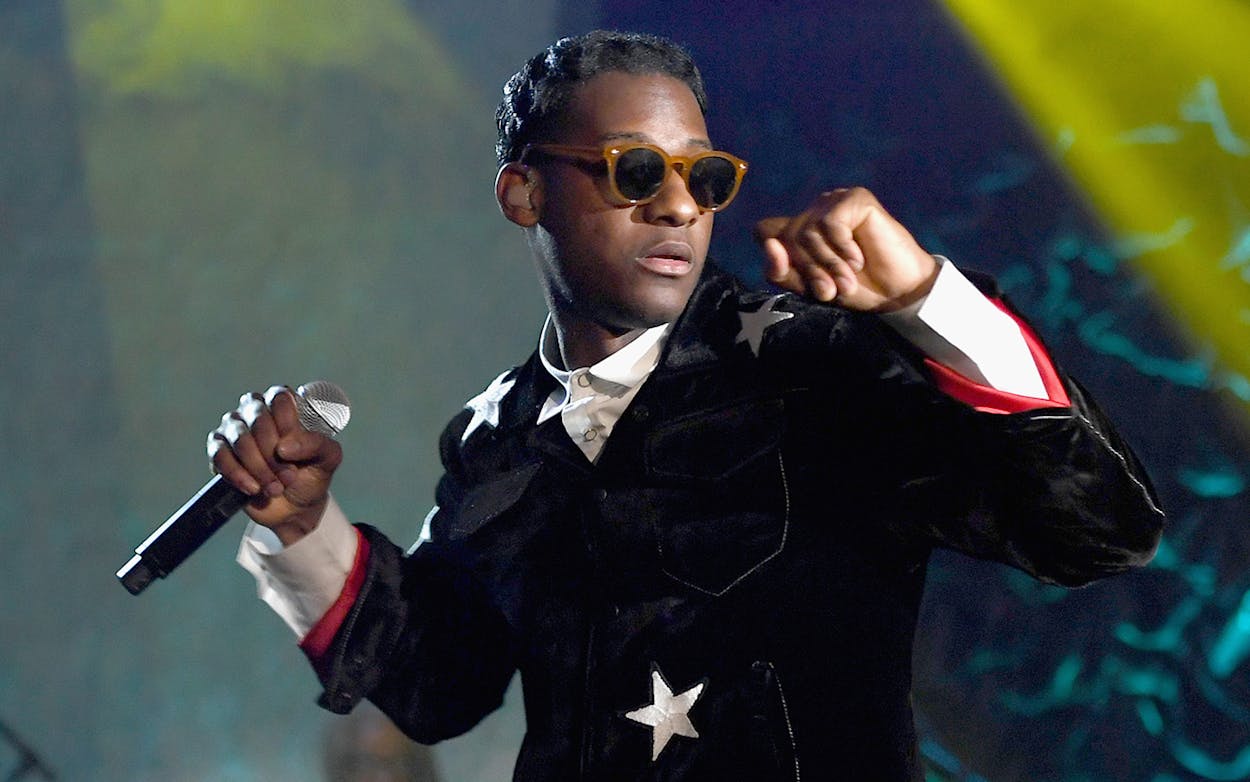The festival market is crowded. In Texas alone, there are the big guns—Austin City Limits, SXSW, Houston’s In Bloom (which took over for Free Press Summerfest)—as well as an ever-growing array of smaller, one or two-day festivals throughout the state, from El Paso’s Neon Desert to San Antonio’s Mala Luna to Dallas’s Homegrown to the Texas-only touring JMBLYA fest. Besides, there’s an increasing number of artist-themed vanity festivals, with Travis Scott’s Astroworld taking over Houston and Post Malone’s Posty Fest in Dallas.
All that competition makes it tough for a young festival to create an identity. Fort Worth’s Fortress Festival, which enters its third year in the spring, seems to have found a way to accomplish that feat: Unlike previous installments, the 2019 edition seems focused on bringing together an array of Texas acts that fit the fest’s indie aesthetics. On Monday, it announced the first half of the 2019 lineup, which is topped by hometown hero Leon Bridges and includes a deep roster of acts with Texas ties. Where previous editions of the festival focused on a random assortment of indie acts—Father John Misty, Run The Jewels, Flying Lotus, and Courtney Barnett were among the headliners—this year, Bridges is joined by rising Dallas rapper Bobby Sessions, breakout Austin hip hop star Abhi the Nomad, Lubbock balladeer Red Shahan, feminist Austin punkers Sailor Poon, Dallas bedroom rapper Adrian Stresow, North Texas indie rockers War Party, Luna Luna, and The Cush, and Austin guitar rock stalwarts Bright Light Social Hour. (The lineup is also joined by non-Texans Tank and the Bangas, the six-member fusion collective out of New Orleans that was one of the breakout acts at SXSW in 2018.)
Fortress Festival organizers say that this is only the first half of the lineup, with the rest of the bill announced in January. (On the current poster, most of the names at the top of the lineup are redacted, which suggests that the next batch of names will include at least one headliner, plus some larger-name sub-headliners.) And while the names are currently under wraps, festival organizers say that the majority of the unnamed artists will share the Texas focus of the early lineup reveal.
Finding an identity for a music festival is a good thing in a crowded market. Some, like Astroworld and Posty Fest, can be built around a celebrity’s own personal brand. (See also: Willie Nelson’s 4th of July Picnic.) Others, like SXSW and ACL, are too big to fail, with an identity as a destination for music fans with varied tastes. But it’s a rough time to be a mid-tier festival in Texas: Sound On Sound, the spiritual successor to Fun Fun Fun Fest, canceled its 2017 edition on short notice, announced no plans for this year, and is unlikely to return; Day For Night, facing issues involving both its leadership and its finances, has announced no plans for 2018 or beyond; Austin’s Levitation, which held a successful run of festivals in the first part of the past decade, skipped its 2016 and 2017 editions, returned in the spring of 2018, and then announced it would be taking a year and a half off with an intention to return in the fall of 2019. The more clearly a festival can outline a clear reason to exist—and to do so within a reasonable budget, which is made easier by booking artists from within a few hundred miles—the better chance it stands in a crowded market.
Strategies like this are no sure thing, though. Dallas’s Homegrown Festival, which similarly pulled top-tier Texas talent to the DFW Metroplex, struggled to sell enough tickets to survive in 2018. Fortress has long scored bigger names, and seems likely to continue to do so even with the renewed focus on Texas—Leon Bridges has a larger audience and relevance than Homegrown’s 2018 headliners of Explosions in the Sky and the Black Angels—which probably puts it in a different class. Regardless, outlining a clear identity and a way to ensure that audiences understand what your festival is about is a good way to ensure that a festival finds secure footing in a crowded marketplace.
- More About:
- Music
- Fort Worth








